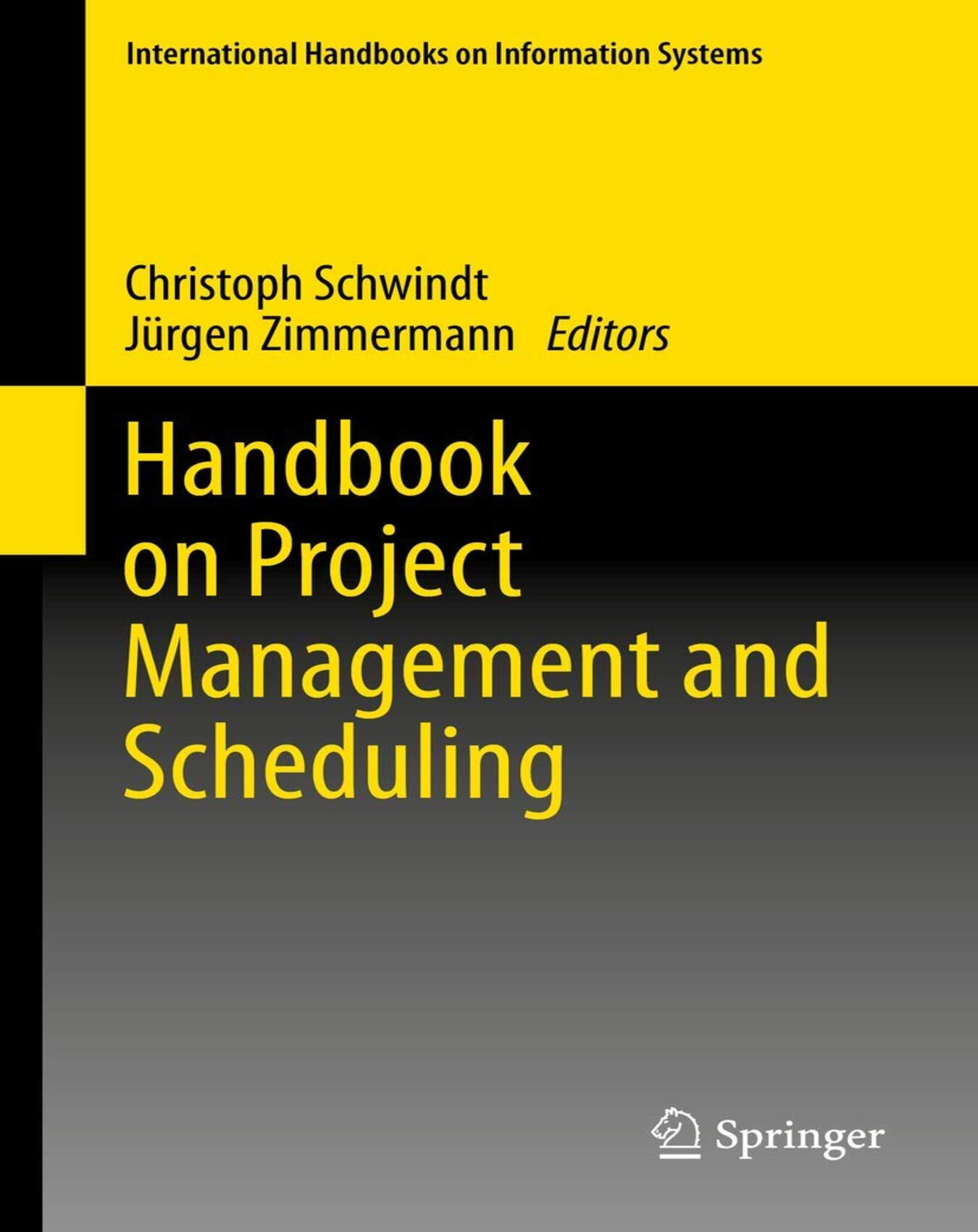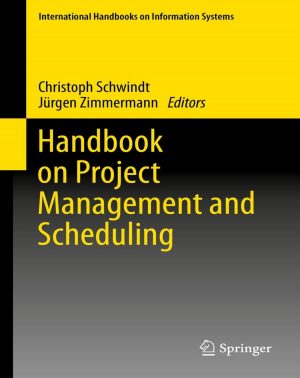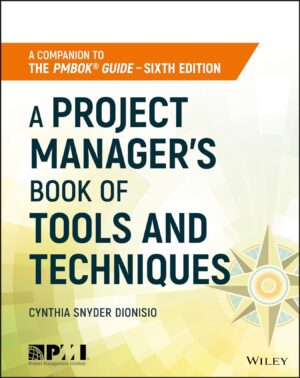The “Handbook on Project Management and Scheduling” Volumes 1 and 2, edited by Christoph Schwindt and Jürgen Zimmermann, are comprehensive resources on the theoretical and practical aspects of project management and scheduling. Here is an analysis of the key sections and concepts from these volumes:
Volume 1
Part I: The Resource-Constrained Project Scheduling Problem (RCPSP)
- Shifts, Types, and Generation Schemes for Project Schedules: Discusses different types of project schedules and their generation.
- Mixed-Integer Linear Programming Formulations: Covers mathematical formulations for solving RCPSP.
- Lower Bounds on the Minimum Project Duration: Explores methods to determine the minimum possible duration for project completion.
- Metaheuristic Methods: Introduces heuristic and metaheuristic approaches for solving scheduling problems.
Part II: RCPSP with Generalized Precedence Relations
- Lower Bounds and Exact Solution Approaches: Techniques to calculate lower bounds and exact solutions.
- Precedence Constraint Posting Approach: A method that involves posting constraints iteratively to build a feasible schedule.
- Satisfiability Solving Approach: Uses satisfiability solvers to address scheduling problems.
Part III: Alternative Resource Constraints
- Time-Varying Resource Requirements and Capacities: Scheduling with resources that have varying availability over time.
- Storage Resources: Incorporates storage constraints into project scheduling.
- Continuous Resources: Deals with resources that can be consumed continuously rather than in discrete units.
- Partially Renewable Resources: Resources that partially renew over time.
Part IV: Preemptive Project Scheduling
- Integer Preemption Problems: Discusses scheduling with tasks that can be interrupted.
- Continuous Preemption Problems: Focuses on continuous task preemption.
Part V: Non-Regular Objectives in Project Scheduling
- Resource-Constrained Net Present Value Problem: Methods to maximize the net present value of project schedules.
- Resource Availability Cost Problem: Strategies for minimizing the costs associated with resource availability.
- Resource Leveling Problems: Techniques to achieve a balanced distribution of resource usage over time.
Part VI: Multi-Criteria Objectives in Project Scheduling
- Theoretical and Practical Fundamentals: Basic principles and practical considerations for multi-criteria project scheduling.
- Goal Programming for Multi-Objective Scheduling: Applying goal programming techniques to multi-objective scheduling problems.
Part VII: Multi-Mode Project Scheduling Problems
- Overview and State of the Art: Current state and key research areas in multi-mode project scheduling.
- Multi-Mode Resource-Constrained Project Scheduling Problem: Methods and models for projects with multiple execution modes.
- Capital-Constrained Net Present Value Problem: Balances project scheduling with financial constraints.
Part VIII: Project Staffing and Scheduling Problems
- Modeling Framework for Project Staffing and Scheduling: Frameworks for integrating staffing considerations into scheduling.
- Multi-Skill Project Scheduling Problem: Approaches to scheduling tasks requiring multiple skills.
- Benders Decomposition Approach: Advanced decomposition techniques for complex scheduling problems.
Part IX: Discrete Time-Cost Tradeoff Problems
- Discrete Time-Cost Tradeoff with Irregular Starting Time Costs: Balances project duration with cost implications.
- Generalized Discrete Time-Cost Tradeoff Problems: Broader approaches to time-cost tradeoff analysis.
Volume 2
Part X: Multi-Project Scheduling
- Basic Multi-Project Scheduling Problem: Introduces the complexities of scheduling multiple projects simultaneously.
- Decentralized Multi-Project Scheduling: Approaches for scheduling projects in a decentralized manner.
Part XI: Project Portfolio Selection Problems
- Multi-Criteria Project Portfolio Selection: Techniques for selecting projects based on multiple criteria.
- Project Portfolio Selection Under Skill Development: Incorporates the development of skills into the project selection process.
Both volumes are rich with methodologies, case studies, and theoretical advancements, making them valuable for researchers and practitioners in the field of project management and scheduling.
Read Sample












Reviews
There are no reviews yet.